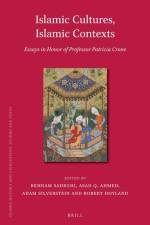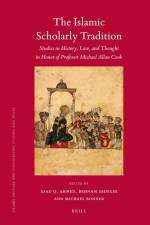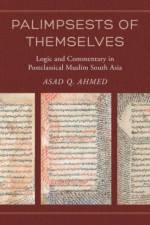- Logic and Commentary in Postclassical Muslim South Asia
av Asad Q. Ahmed
419
"Palimpsests of Themselves is a transformative work of historical scholarship. With empathy and rigor, Asad Q. Ahmed succeeds brilliantly in recreating the intricate logical theories and exegetical practices of South-Asian Muslim logicians and commentators, who up to now have been entirely neglected in Islamic Studies and in the history of philosophy."--Robert Wisnovsky, James McGill Professor of Islamic Philosophy, McGill University "This is a fascinating text of early modern logic, beautifully presented. Perhaps more importantly, Asad Q. Ahmed has set the Sullam against the commentary tradition it engendered. His intricate analysis, working from a number of perspectives, brings to life the scholarly world for which the evolving reception of Bihārī's masterpiece was a crucial incitement to sustained philosophical creativity."--Tony Street, University of Cambridge "Both the amount of hitherto unstudied material excavated by Ahmed and the care and sophistication with which he handles this material are remarkable and put scholarship on Indo-Muslim philosophy and logic on an entirely new footing. Particularly impressive are his identification of distinct scholarly lineages in various regional centers and his reflections on the cultural and pedagogical context of the widespread practice of writing commentaries, glosses, and super-commentaries."--Khaled El-Rouayheb, James Richard Jewett Professor of Arabic and of Islamic Intellectual History, Harvard University "A stunning piece of work. The historical detective work on the commentaries and their interconnections is truly extraordinary, as is the marriage of philological and philosophical skills that went into the translation, edition, and commentary."--Peter Adamson, Professor of Philosophy, Ludwig Maximilian University of Munich "Asad Q. Ahmed provides not just an invaluable translation and study of a major text in the logical tradition but also puts forward a significant theory for reading texts and understanding commentary traditions in the post-classical period."--Sajjad H. Rizvi, Director, Institute of Arab and Islamic Studies, University of Exeter



